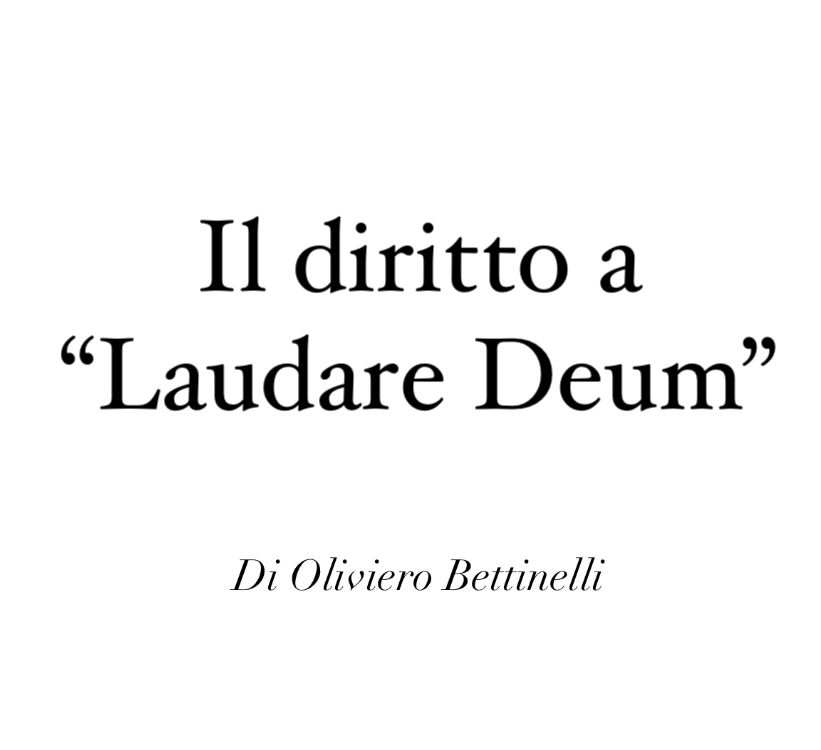Pubblichiamo il Messaggio congiunto di Papa Francesco, di Bartolomeo I Patriarca ecumenico di Costantinopoli e dell’arcivescovo di Canterbury Justin Welby:per la protezione del Creato:
A JOINT MESSAGE FOR THE PROTECTION OF CREATION
For more than a year, we have all experienced the devastating effects of a global pandemicâall of us, whether poor or wealthy, weak or strong. Some were more protected or vulnerable than others, but the rapidly-spreading infection meant that we have depended on each other in our efforts to stay safe. We realised that, in facing this worldwide calamity, no one is safe until everyone is safe, that our actions really do affect one another, and that what we do today affects what happens tomorrow.
These are not new lessons, but we have had to face them anew. May we not waste this moment. We must decide what kind of world we want to leave to future generations. God mandates: âChoose life, so that you and your children might liveâ (Dt 30:19). We must choose to live differently; we must choose life.
September is celebrated by many Christians as the Season of Creation, an opportunity to pray and care for Godâs creation. As world leaders prepare to meet in November at Glasgow to deliberate on the future of our planet, we pray for them and consider what the choices we must all make. Accordingly, as leaders of our Churches, we call on everyone, whatever their belief or worldview, to endeavour to listen to the cry of the earth and of people who are poor, examining their behaviour and pledging meaningful sacrifices for the sake of the earth which God has given us.
The Importance of Sustainability
In our common Christian tradition, the Scriptures and the Saints provide illuminating perspectives for comprehending both the realities of the present and the promise of something larger than what we see in the moment. The concept of stewardshipâof individual and collective responsibility for our God-given endowmentâpresents a vital starting-point for social, economic and environmental sustainability. In the New Testament, we read of the rich and foolish man who stores great wealth of grain while forgetting about his finite end (Lk 12.13â21). We learn of the prodigal son who takes his inheritance early, only to squander it and end up hungry (Lk 15.11â32). We are cautioned against adopting short term and seemingly inexpensive options of building on sand, instead of building on rock for our common home to withstand storms (Mt 7.24â27). These stories invite us to adopt a broader outlook and recognise our place in the extended story of humanity.
But we have taken the opposite direction. We have maximised our own interest at the expense of future generations. By concentrating on our wealth, we find that long-term assets, including the bounty of nature, are depleted for short-term advantage. Technology has unfolded new possibilities for progress but also for accumulating unrestrained wealth, and many of us behave in ways which demonstrate little concern for other people or the limits of the planet. Nature is resilient, yet delicate. We are already witnessing the consequences of our refusal to protect and preserve it (Gn 2.15). Now, in this moment, we have an opportunity to repent, to turn around in resolve, to head in the opposite direction. We must pursue generosity and fairness in the ways that we live, work and use money, instead of selfish gain.
The Impact on People Living with Poverty
The current climate crisis speaks volumes about who we are and how we view and treat Godâs creation. We stand before a harsh justice: biodiversity loss, environmental degradation and climate change are the inevitable consequences of our actions, since we have greedily consumed more of the earthâs resources than the planet can endure. But we also face a profound injustice: the people bearing the most catastrophic consequences of these abuses are the poorest on the planet and have been the least responsible for causing them. We serve a God of justice, who delights in creation and creates every person in Godâs image, but also hears the cry of people who are poor. Accordingly, there is an innate call within us to respond with anguish when we see such devastating injustice.
Today, we are paying the price. The extreme weather and natural disasters of recent months reveal afresh to us with great force and at great human cost that climate change is not only a future challenge, but an immediate and urgent matter of survival. Widespread floods, fires and droughts threaten entire continents. Sea levels rise, forcing whole communities to relocate; cyclones devastate entire regions, ruining lives and livelihoods. Water has become scarce and food supplies insecure, causing conflict and displacement for millions of people. We have already seen this in places where people rely on small scale agricultural holdings. Today we see it in more industrialised countries where even sophisticated infrastructure cannot completely prevent extraordinary destruction.
Tomorrow could be worse. Todayâs children and teenagers will face catastrophic consequences unless we take responsibility now, as âfellow workers with Godâ (Gn 2.4â7), to sustain our world. We frequently hear from young people who understand that their futures are under threat. For their sake, we must choose to eat, travel, spend, invest and live differently, thinking not only of immediate interest and gains but also of future benefits. We repent of our generationâs sins. We stand alongside our younger sisters and brothers throughout the world in committed prayer and dedicated action for a future which corresponds ever more to the promises of God.
The Imperative of Cooperation
Over the course of the pandemic, we have learned how vulnerable we are. Our social systems frayed, and we found that we cannot control everything. We must acknowledge that the ways we use money and organize our societies have not benefited everyone. We find ourselves weak and anxious, submersed in a series of crises; health, environmental, food, economic and social, which are all deeply interconnected.
These crises present us with a choice. We are in a unique position either to address them with shortsightedness and profiteering or seize this as an opportunity for conversion and transformation. If we think of humanity as a family and work together towards a future based on the common good, we could find ourselves living in a very different world. Together we can share a vision for life where everyone flourishes. Together we can choose to act with love, justice and mercy. Together we can walk towards a fairer and fulfilling society with those who are most vulnerable at the centre.
But this involves making changes. Each of us, individually, must take responsibility for the ways we use our resources. This path requires an ever-closer collaboration among all churches in their commitment to care for creation. Together, as communities, churches, cities and nations, we must change route and discover new ways of working together to break down the traditional barriers between peoples, to stop competing for resources and start collaborating.
To those with more far-reaching responsibilitiesâheading administrations, running companies, employing people or investing fundsâwe say: choose people-centred profits; make short-term sacrifices to safeguard all our futures; become leaders in the transition to just and sustainable economies. âTo whom much is given, much is required.â (Lk 12:48)
This is the first time that the three of us feel compelled to address together the urgency of environmental sustainability, its impact on persistent poverty, and the importance of global cooperation. Together, on behalf of our communities, we appeal to the heart and mind of every Christian, every believer and every person of good will. We pray for our leaders who will gather in Glasgow to decide the future of our planet and its people. Again, we recall Scripture: âchoose life, so that you and your children may liveâ (Dt 30:19). Choosing life means making sacrifices and exercising self-restraint.
All of usâwhoever and wherever we areâcan play a part in changing our collective response to the unprecedented threat of climate change and environmental degradation.
Caring for Godâs creation is a spiritual commission requiring a response of commitment. This is a critical moment. Our childrenâs future and the future of our common home depend on it.
1st September 2021
Â





